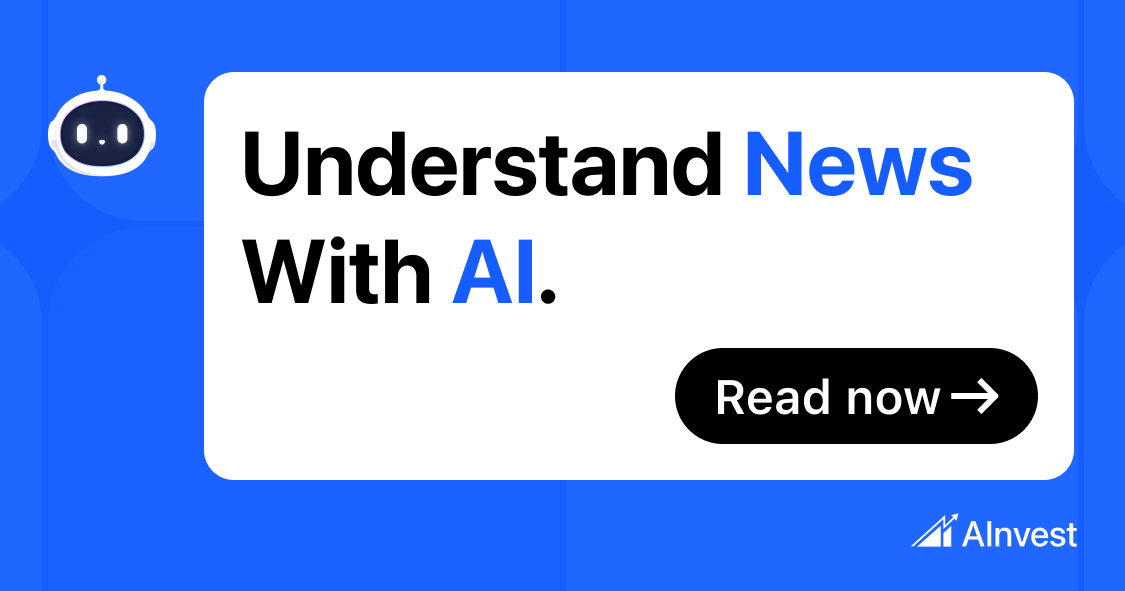Tools & Platforms
Trump joins tech, energy executives for summit as administration pushes AI expansion
U.S. President Donald Trump attends the Pennsylvania Energy and Innovation Summit, at Carnegie Mellon University in Pittsburgh on Tuesday.Nathan Howard/Reuters
President Donald Trump joined executives from some of the largest U.S. tech and energy companies for a summit in Pittsburgh on Tuesday as the administration prepares more measures to power the U.S. expansion of artificial intelligence.
Top economic rivals, the U.S. and China, are locked in a technological arms race over who can dominate AI as the technology takes on increasing importance everywhere from corporate boardrooms to the battlefield.
The Energy and Innovation Summit at Carnegie Mellon University brought tech executives and officials from top energy and tech firms, including Meta Platforms Inc. META-Q, Microsoft Corp. MSFT-Q, Alphabet GOOGL-Q and Exxon Mobil Corp. XOM-N, to discuss how to position the U.S. as a leader in AI.
Trump and the summit’s host, U.S. Senator Dave McCormick, a Republican ally from Pennsylvania, highlighted some US$90-billion in artificial intelligence and energy investments in the state.
“This is a really triumphant day for the people of the Commonwealth and for the United States of America, we’re doing things that nobody ever thought possible,” Trump told the attendees.
Big Tech is scrambling to secure enough electricity to power the energy-guzzling data centres needed for its rapid expansion of artificial intelligence. Companies began announcing their plans early on Tuesday, with Google inking a US$3-billion electricity deal and CoreWeave touting a US$6-billion AI data centre.
Google said it secured as much as three gigawatts of U.S. hydropower in a deal between the tech firm and Brookfield Asset Management that includes initial 20-year power purchase agreements for electricity generated from two facilities in Pennsylvania.
Asset management firm Blackstone’s President Jon Gray also said they will announce on Tuesday a US$25-billion investment in data centres and energy infrastructure in Pennsylvania.
The CEOs that attended included Khaldoon Al-Mubarak of Abu Dhabi investment company Mubadala, Rene Haas of Arm, Larry Fink of BlackRock, Darren Woods of Exxon Mobil, Brendan Bechtel of Bechtel and Dario Amodei of Anthropic.
The White House is considering executive actions in the coming weeks to make it easier for power-generating projects to connect to the grid and also provide federal land on which to build the data centres needed to expand AI technology, Reuters previously reported.
Zuckerberg says Meta will spend hundreds of billions to build AI data centres
The administration is also weighing streamlining permitting for data centres by creating a nationwide Clean Water Act permit, rather than requiring companies to seek permits on a state-by-state basis.
Trump ordered his administration in January to produce an AI Action Plan that would make “America the world capital in artificial intelligence” and reduce regulatory barriers to its rapid expansion.
That report, which includes input from the National Security Council, is due by July 23.
Trump is set to mark that deadline with a major speech as part of an event titled “Winning the AI Race,” organized by White House AI and crypto czar David Sacks and his co-hosts on the All-In podcast, a White House official told Reuters.
U.S. power demand is hitting record highs this year after nearly two decades of stagnation as AI and cloud computing data centres balloon in numbers and size across the country. The demand is also leading to unprecedented deals between the power industry and technology companies, including the attempted restart of the Three Mile Island nuclear power plant in Pennsylvania between Constellation Energy and Microsoft.
The surge has led to concerns about power shortages that threaten to raise electricity bills and increase the risk of blackouts, while slowing Big Tech in its global race against countries like China to dominate AI.
Tools & Platforms
Planet Technologies Launches ‘Any AI Workforce Readiness Training’ to Support Agency Compliance with Federal AI Mandates
“Technology alone will not win the AI race. People will,” said Steve Winter, Executive Vice President for Planet Technologies. “Planet’s Any AI Workforce Readiness Training provides agencies with a turnkey solution to equip their employees with the skills needed to adopt AI technologies and meet federal compliance standards—while enabling mission success.”
Human-Centered, Vendor-Neutral Approach
Building an AI-ready workforce requires more than just tools; it demands a thoughtful approach that fosters trust, cultivates responsible practices, and embraces the unique missions of public sector agencies. Unlike many vendor-specific or tool-focused training programs, Planet’s Any AI Workforce Readiness Training stands out because it is:
- Mandate-Aligned – Built in alignment with current federal AI policy requirements and directives.
- Human-Centered – Prioritizes adoption, trust, and responsible use across roles and missions.
- Universally Applicable – Suitable for any platform or tools, enabling any public sector organization to future-proof their workforce.
- Backed by Proven Public Sector Expertise – Delivered by Planet Technologies’ public sector-focused learning and adoption experts.
Training Components for Public Sector AI Readiness
The program offers a mix of custom webinars, classroom training, and communications assets that support organizational change management. Topics include:
- AI Fundamentals for Everyone
- AI and Data Privacy Basics
- AI Security Awareness
- AI Prompting & Productivity
- AI in Everyday Workflows
- Stakeholder Engagement & Public Trust
Speed, Affordability, and Scalability
Any AI Workforce Readiness Training is designed for fast deployment and scalability across federal, state, and local agencies, adapting to diverse missions and compliance needs.
“With executive mandates driving rapid adoption timelines, agencies need solutions they can roll out immediately,” added Jennifer Mason, Vice President of Workforce Transformation & Learning at Planet Technologies. “Planet’s Any AI Workforce Readiness Training delivers both speed and depth—helping agencies build AI readiness at scale, affordably and responsibly.”
About Planet Technologies
Planet Technologies is the leading provider of Microsoft professional services to the public sector. Proudly supporting U.S. government agencies, educational institutions, and the Defense Industrial Base for 27 years, Planet is backed by 13 Microsoft Specializations and 27 Microsoft Partner of the Year Awards. Trusted by clients and endorsed by Microsoft, Planet helps organizations scale the right solutions for their most critical priorities. Learn more at go-planet.com.
Media Contact
Aubrey Wood, Planet Technologies, 1 301-721-0100, [email protected], go-planet.com
SOURCE Planet Technologies

Tools & Platforms
AI-Driven Tech Stocks and Analyst Momentum: Evaluating Microsoft, Marvell, and NIO – AInvest
Tools & Platforms
To prepare young people for the AI workplace, focus on the fundamentals

This spring, tech executives began sounding the alarm that artificial intelligence (AI) is rendering entry-level office jobs obsolete—positions long relied on as training grounds for advanced skills and networks. Headlines have since warned that AI will break the bottom rung of the career ladder, and white collar jobs such as software developers may be among the first to be disrupted by AI, especially for younger workers. Other analysts predict that, over time, low-wage service workers may ultimately be the most severely impacted.
Yet the picture is more complex than entry-level jobs simply disappearing overnight. While some predictions emphasize large-scale displacement, others argue that as employers start to use AI in the workplace, they are more likely to retrain workers instead of lay them off. In this way, AI may be more likely to augment rather than fully replace human workers.
Regardless of whether AI ultimately transforms, augments, or replaces jobs in the future, young Americans are already trying to grapple with uncertainty as they face major career and education decisions. Those with more connections and better access to information may benefit most, which could very quickly widen existing opportunity gaps just as early-career roles and other opportunities for gaining work experience become scarcer.
This piece highlights critical insights from interviews with state and community leaders about how to strategically tackle these opportunity gaps. We spoke to 21 state and local innovators in workforce agencies, community colleges, and training organizations about how they are working across programs to build career pathways for youth. This June, we distilled their insights into “A Blueprint for Developing Economic Opportunity for All Youth,” published by the American Institutes for Research.
Our research uncovered that alongside AI disruptions, state and local leaders feel added pressure amid federal budget cuts to more effectively marshal scarce and siloed resources to help youth build skills and find their first job. This work will likely become more urgent as AI disruptions unfold. The gains from AI may not be evenly distributed—and uncertainty alone is reshaping how young people think about their futures.
Young people still need fundamental career supports
Our interviews with state and local innovators revealed that while AI may dominate headlines, the real barriers to youth economic mobility aren’t new problems caused by technology. Instead, they’re long-standing challenges such as unequal access to information to navigate career options and a lack of early, hands-on work experience—barriers that AI uncertainty has made more urgent to solve.
There is no magic bullet for youth economic mobility, but there are clear strategies for future-proofing skill development in an AI-augmented workplace. Further, our research with state and local innovators who are trying to support youth in their efforts to achieve career success reveals that whether AI destroys jobs or transforms them, young people still need the same fundamental supports, including:
A rich array of services. Success requires diverse skill-building (occupational, essential, and foundational), career navigation support, meeting basic needs, and personalized attention through mentorship and coaching.
Leaders at Per Scholas, which provides sectoral training for technology careers, noted the importance of combining technical skills training with a wide range of other skills training and services, including coaching, work-readiness skills, social capital connections, transportation, child care, and paid work experience to cover basic needs. For youth ages 16 to 24 who are often dealing with the aftermath of having tried something and failed, it is critical to restore a sense of self-confidence and use their learning experiences to overcome imposter syndrome.
Hands-on, experiential learning. The innovators we spoke with emphasize apprenticeships, internships, and sectoral training that offer real workplace experience starting as early as middle and high school. These work-based learning programs embed youth with mentors and peer networks that provide lasting social capital.
In Charleston, S.C., employers, Trident Technical College (a community college), and several high schools have collaborated on apprenticeships since 2014. Employer partners wanted to offer apprenticeships to high school youth, which led to the creation of the Charleston Regional Youth Apprenticeships program, one of the country’s first regional youth apprenticeship initiatives. Youth apprentices gain access to paid hands-on learning and mentoring in the workplace, receive scholarships for the related instruction, earn college credit, and obtain a certificate of completion from the U.S. Department of Labor when they finish.
Human-centered navigation. AI can’t replace the power of a mentor. Humans can help individuals unlock access to information and provide guidance by cutting across a fragmented system of social services, education programs, and career opportunities.
In Denver, a collaborative network of partners has started to map out a sophisticated partnership model organized around the metaphor of climbing a mountain toward the shared goal of building community wealth. Jason Janz, a key leader in that effort and the CEO of a community-based organization called CrossPurpose, identified three functions as necessary components of a human-centered regional ecosystem: “nichers,” who specialize in solving a particular problem; “negotiators,” who focus on policy- and system-level infrastructure; and “navigators,” who guide individuals to personalized resources across organizations. Of all these functions, navigation was the scarcest. To address that gap, they work closely with individuals in a way that caters to their specific situation to support their success and economic mobility over a period of three to 10 years.
Collaborative ecosystems. Rather than individual programs competing across fragmented silos, successful regions are building sophisticated partnerships that center youth needs, align funding streams, and share data across organizations.
Recognizing the amount of infrastructure spending in their region of Austin, Texas, leaders from the workforce board, chamber of commerce, mayor’s office, and community college system all came together to form an “infrastructure academy.” The city council approved $5 million to use a “follow the person” funding model, in which individuals are directed to services based on what they need instead of a preset bundle of services. For youth ages 16 to 24, they have found that starting earlier with paid work-based learning is important, but it is also critical to combine it with individualized navigation support and services such as child care.
Funders and decisionmakers should focus on long-standing gaps, not just AI impacts
Rather than trying to predict AI’s specific labor market effects through new programs or more pilots, funders should invest in helping state and local innovators build evergreen, demand-driven, ecosystem-level support and infrastructure by:
- Strategically co-investing in ecosystems, not just single programs or grantees, and ensure they expose youth to experiential learning in the workplace.
- Addressing navigation gaps at every stage of the confusing transition from school to a career.
- Connecting program innovators with their counterparts working on digital transformation through communities of practice.
- Building ecosystem-wide capacity through technical assistance, rapid-cycle learning, peer networks, and backbone organizations.
AI will continue to transform the nature of work, but the innovators we spoke to aren’t waiting for those changes to unfold. They’re building adaptive, human-centered systems that prepare young people for uncertainty itself by equipping them with information, skills, networks, and resilience to navigate whatever the future holds.
As one local leader told us, success requires moving beyond “individual operator silos” and toward “sophisticated regional ecosystems that center youth needs.” In an age of AI anxiety, we need collaborative, adaptive responses rather than rigid, single-program solutions. State and local leaders are already pointing the way—now we need to accelerate their momentum.
-

 Business6 days ago
Business6 days agoThe Guardian view on Trump and the Fed: independence is no substitute for accountability | Editorial
-
Tools & Platforms3 weeks ago
Building Trust in Military AI Starts with Opening the Black Box – War on the Rocks
-

 Ethics & Policy1 month ago
Ethics & Policy1 month agoSDAIA Supports Saudi Arabia’s Leadership in Shaping Global AI Ethics, Policy, and Research – وكالة الأنباء السعودية
-

 Events & Conferences4 months ago
Events & Conferences4 months agoJourney to 1000 models: Scaling Instagram’s recommendation system
-

 Jobs & Careers2 months ago
Jobs & Careers2 months agoMumbai-based Perplexity Alternative Has 60k+ Users Without Funding
-

 Education2 months ago
Education2 months agoVEX Robotics launches AI-powered classroom robotics system
-

 Funding & Business2 months ago
Funding & Business2 months agoKayak and Expedia race to build AI travel agents that turn social posts into itineraries
-

 Podcasts & Talks2 months ago
Podcasts & Talks2 months agoHappy 4th of July! 🎆 Made with Veo 3 in Gemini
-

 Podcasts & Talks2 months ago
Podcasts & Talks2 months agoOpenAI 🤝 @teamganassi
-

 Education2 months ago
Education2 months agoMacron says UK and France have duty to tackle illegal migration ‘with humanity, solidarity and firmness’ – UK politics live | Politics




















